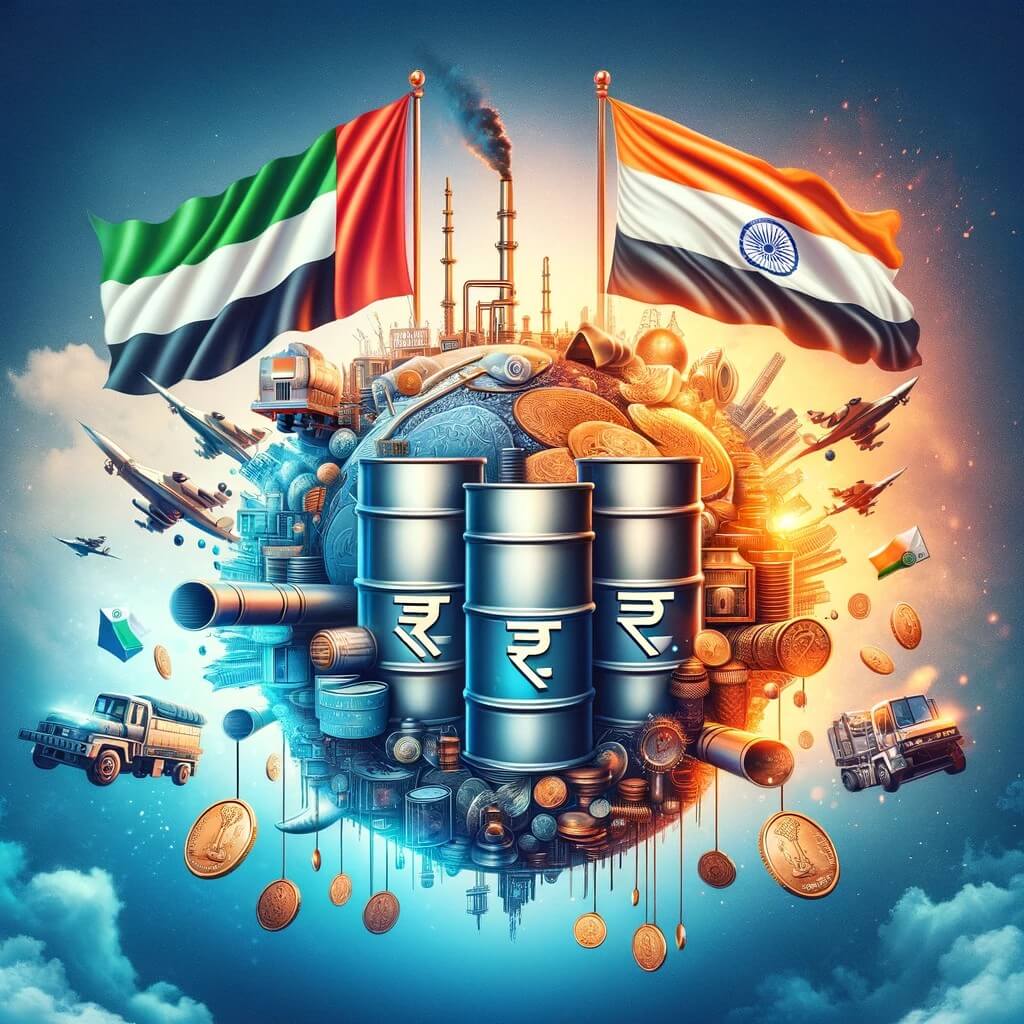India and the United Arab Emirates (UAE) have executed their first-ever oil trade using India’s rupee instead of the US dollar. This groundbreaking agreement reflects both countries’ commitment to abandon the dollar in bilateral transactions, marking a pivotal moment in the global financial landscape. This article delves into the details of this historic oil deal and its implications for the BRICS nations.
De-Dollarization Efforts Bear Fruit
Throughout 2023, the BRICS economic alliance, consisting of Brazil, Russia, India, China, and South Africa, has been actively working to expand its global influence and reduce Western dominance in international trade. A crucial aspect of this endeavor has been the alliance’s determination to minimize the use of the US dollar in their bilateral transactions.
The India-UAE oil trade agreement is a significant outcome of these de-dollarization efforts. For the first time, India, a BRICS member, conducted a transaction in its local currency, the rupee, with the UAE. This transaction was part of India’s substantial expenditure of $157.5 billion on imported oil.
This move not only underscores the BRICS alliance’s resolve to reduce the dollar’s supremacy in global trade but also highlights the growing importance of the rupee as a settlement currency. In 2022, the Reserve Bank of India introduced an initiative allowing importers to make purchases in rupees, while exporters receive payments in the same currency.
This bilateral trade represents just the beginning of what promises to be a mutually beneficial partnership between India and the UAE. The UAE is poised to become an official member of the BRICS alliance in 2024, having received an invitation in August of this year. As they solidify their ties, both nations are likely to explore expanded trade opportunities and diversification of their economies in a shifting global power landscape.
A Global Paradigm Shift
The India-UAE oil deal in rupees is a testament to the evolving dynamics of global trade. As more nations seek alternatives to the US dollar, this landmark agreement may set a precedent for other countries to follow suit. It reflects the BRICS nations’ collective determination to challenge the dollar’s dominance and establish their own currencies as viable alternatives.
The move is not only economically significant but also carries geopolitical implications. It signals a shift in the global balance of power, with emerging economies like India and the UAE asserting their influence on the international stage. This development aligns with the broader trend of multipolarism, where several nations exert influence rather than a single superpower.
In essence, the India-UAE oil trade conducted in rupees instead of dollars represents a pivotal moment in the global financial landscape. It symbolizes the BRICS nations’ commitment to reducing the dollar’s prevalence in international trade and highlights the growing importance of the rupee. As the world continues to witness a shift away from dollar hegemony, this landmark agreement serves as a beacon of change and underscores the rise of emerging economies in shaping the future of global commerce.





